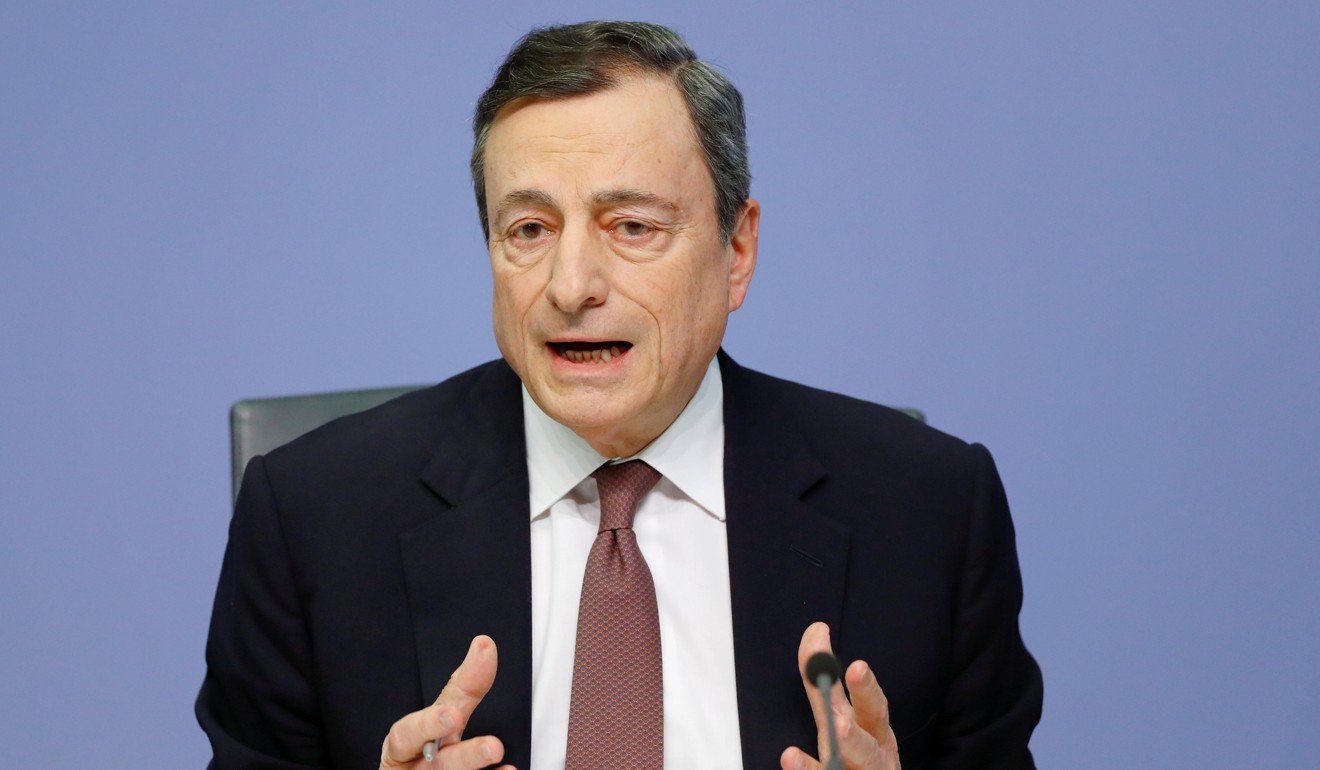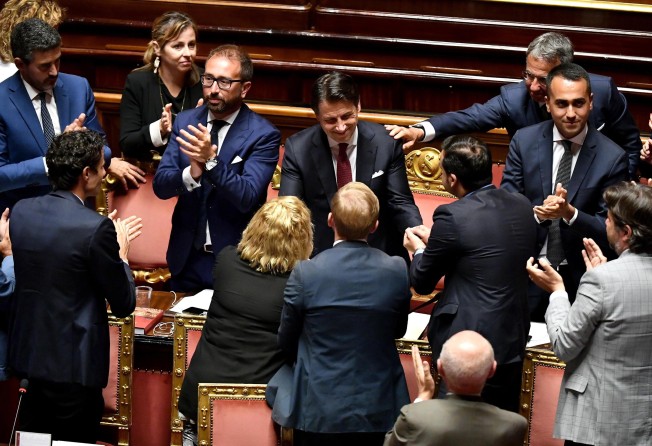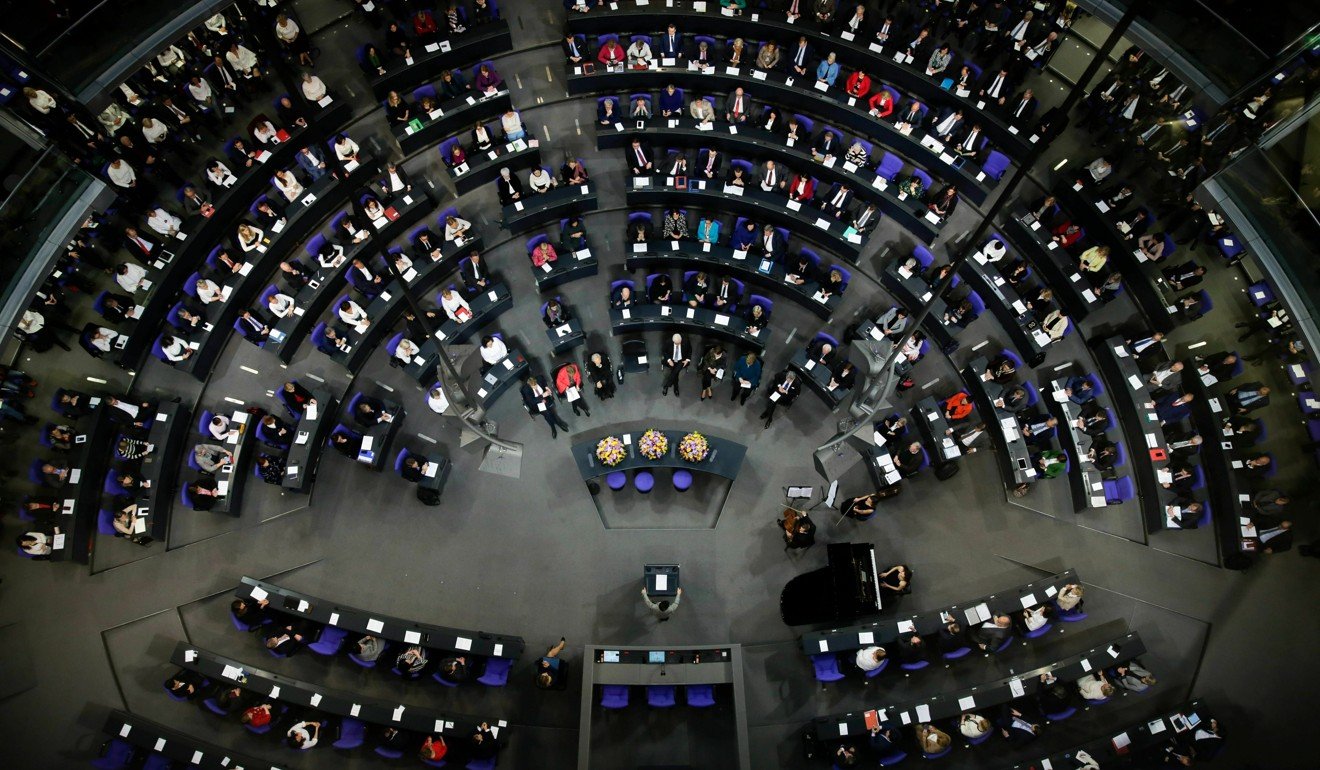
Central banks like the Fed and the ECB can’t save the global economy when governments refuse to play their part
- Fed and ECB actions after the 2008 crisis have been crucial, but they have reached the limits of what they can achieve
- If governments like Germany won’t stimulate and Italy won’t reform, it’s unreasonable to expect more from central banks

The US Federal Reserve and the European Central Bank, the world’s two most influential central banks, are in a bind. As a mood of gloom envelops the global economy, both institutions have been under intense pressure from markets to unleash further stimulus measures.
Yet, while investors expect additional easing, they have never been more sceptical about the ability of central banks to stabilise markets and stimulate growth.
While both central banks are loath to precipitate a sharp sell-off by failing to meet investors’ expectations, the markets, and indeed central bankers themselves, doubt the efficacy of monetary policy, given that the threats and impediments to global growth are beyond central banks’ control.
To be sure, there is a strong case for more stimulus, especially in the euro zone, where the core inflation rate – which strips out volatile food and energy prices – has dropped to less than half the ECB’s 2 per cent target. Germany, Europe’s largest economy, is on the brink of recession, while manufacturing activity in the bloc as a whole has contracted for the past seven months, survey data from IHS Markit shows.

Even in America, whose economy is still relatively buoyant, growth has slowed markedly as the trade war has intensified. Manufacturing output shrank last month for the first time since 2016, while a gauge of consumer sentiment suffered its sharpest fall since 2012.
The problem, however, is that it is highly unlikely that both central banks will be able to satisfy markets, not because they are not doing enough to support growth but, rather, because monetary policy is increasingly perceived as impotent and overburdened.
In the years following the 2008 financial crisis, the leading central banks were, as Mohamed El-Erian, chief economic adviser at Allianz and a veteran bond investor, aptly put it, “the only game in town”.
Not only were they the key policy actors – Mario Draghi, the outgoing president of the ECB, almost single-handedly prevented the euro zone from breaking up in 2012 by pledging to backstop the bond markets of Italy and Spain – investors relied on central banks’ massive liquidity injections to lift asset prices.
Yet, after a decade of aggressive quantitative easing (QE) and dramatic cuts in interest rates, global growth remains lacklustre. What is more, QE has had pernicious effects, distorting markets and, according to some studies, exacerbating income disparities, contributing to the rise of populism in America and Europe.
....The USA should always be paying the the lowest rate. No Inflation! It is only the naïveté of Jay Powell and the Federal Reserve that doesn’t allow us to do what other countries are already doing. A once in a lifetime opportunity that we are missing because of “Boneheads.”
— Donald J. Trump (@realDonaldTrump) September 11, 2019
The escalation in trade tensions has thrown the limitations of ultra-loose monetary policy into sharp relief. While investors used to hang on central bankers’ every word, they are now more focused on the latest tweets from US President Donald Trump. Not only have central banks proved unable to allay fears about growth, the institutions themselves have become sources of volatility.
Simply put, there is mounting pressure for new policy actors to step up to ease the burden on central banks and, crucially, improve the prospects for growth.
The quickest way to help restore confidence would be if Trump backed down in his confrontation with China and agreed a trade truce that rolled back the tariffs. While this may yet happen as the president gears up for re-election, his unreliability and unpredictability make a durable and meaningful truce difficult to strike.
A more likely fillip is a relaxation in fiscal policy. While America has already cut taxes and increased spending, Germany, which prides itself on its unwavering commitment to austerity, is currently debating whether to loosen the purse strings if the economy slides into recession later this year.
Regrettably, Europe’s largest economy is likely to continue donning its self-imposed fiscal straitjacket. Indeed, even if a recession were to materialise, most German politicians would have to be dragged kicking and screaming into supporting a major fiscal stimulus package.

Another area where governments could lift some of the burden of supporting growth from central banks is the implementation of structural economic reforms.
While the current slowdown is mostly attributable to the trade war, insufficient supply-side reforms – particularly the liberalisation of product and labour markets – have been holding back growth for years.
Nowhere is this more apparent than in Italy, the “sick man of Europe”. A report from the Organisation for Economic Cooperation and Development published in April notes that Italy’s gross domestic product per head is at the same level as it was 20 years ago.
All this bodes ill for monetary policy, especially in Europe. Desperate to pass the baton to governments, the major central banks seem destined to remain the only game in town for some time.
If both the ECB and the Fed disappoint markets again, it is because politicians continue to shirk their responsibilities.
Nicholas Spiro is a partner at Lauressa Advisory